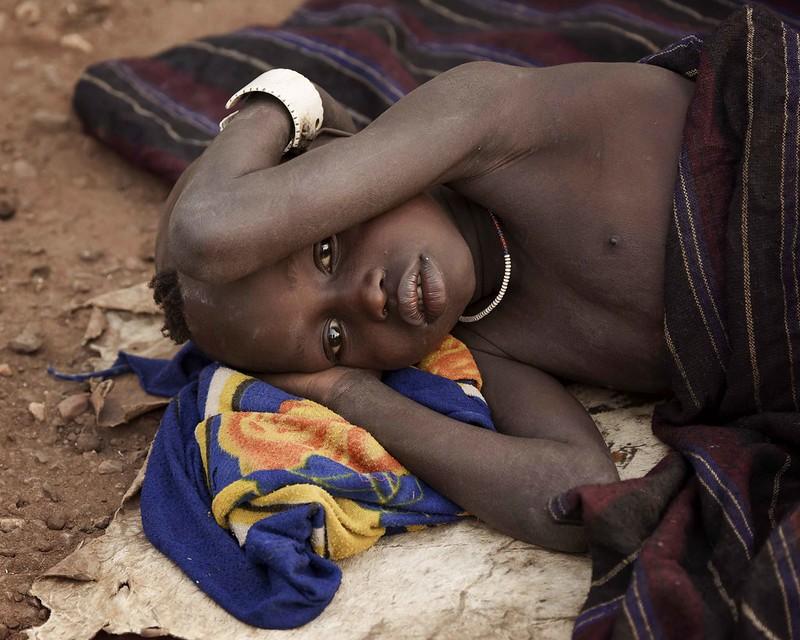A study conducted in Uganda has found evidence of partial resistance to the primary treatment for malaria in young children with severe forms of the parasitic disease.
The study, published today in JAMA by an international team of researchers and presented at the annual meeting of the American Society of Tropical Medicine and Hygiene (ASTMH), found partial resistance to artemisinin in 11 of 100 Ugandan children aged 6 months to 12 years who had complicated malaria caused by Plasmodium falciparum. Partial artemisinin resistance is widespread in Southeast Asia but has emerged in recent years in countries in east Africa.
Although the 11 children recovered, the study also found a recurrence of malaria in 10 other children who were thought to have been initially cured.
Malaria caused an estimated 608,000 deaths globally in 2022, and children under the age of 5 years in sub-Saharan Africa are among the most vulnerable to the disease. Previous research of patients with uncomplicated malaria in Uganda has indicated that partial artemisinin resistance is present in the country. But the researchers say the detection of partial resistance in young children with severe disease is a first.
Evidence of resistance before they even started looking
The children were receiving treatment with intravenous artesunate, a synthetic derivative of artemisinin, and oral artemisinin combination therapy (ACT) that combines another artemisinin derivative (artemether) with a longer-acting partner drug (lumefantrine). Artemisinin and ACTs have greatly contributed to reductions in malaria deaths and complications, particularly in Africa, where 95% of malaria cases and deaths occur.
Of the 100 children (mean age, 3.7 years; 47% female) enrolled in the study from 2021 to 2022, 41 met World Health Organization criteria for severe malaria, and the remainder had complications requiring hospitalizations. Analysis of malaria isolates from the children found that 11 contained mutations in the P falciparum kelch13 (pfkelch13) protein that mediate partial resistance to artemisinin. Partial artemisinin resistance can delay parasite clearance and lead to poor outcomes.
The researchers said that 2 of the 11 children failed to clear their parasites after the standard maximum of 3 days of artesunate therapy and required longer treatment. An additional 10 children had a repeat malaria attack 28 days after receiving artesunate and ACT therapy, but recurrence was not associated with the pfkelch13 mutations.
Study co-author Chandy John, MD, director of the Indiana University School of Medicine Ryan White Center for Infectious Diseases and Global Health, said the initial purpose of the research was to investigate outcomes in children with complicated malaria. But the focus changed after the team, which included researchers from Makere University in Uganda, the University of Pennsylvania, and the London School of Hygiene & Tropical Medicine, saw signs that some children were responding slower to treatment.
"The fact that we started seeing evidence of drug resistance before we even started specifically looking for it is a troubling sign," John said in an ASTMH press release. "We were further surprised that, after we turned our focus to resistance, we also ended up finding patients who had recurrence after we thought they had been cured."
John and his colleagues say that, given the high morbidity and risk of death in children with complicated malaria, additional studies in such children are needed to confirm the presence of partial artemisinin resistance and clinical treatment failure.
The fact that we started seeing evidence of drug resistance before we even started specifically looking for it is a troubling sign.
In an accompanying editorial, Philip Rosenthal, MD, a professor of medicine at the University of California, San Francisco, who studies malaria, says that if partial artemisinin resistance is indeed associated with poorer outcomes in children with complicated malaria, it could affect thousands of children in sub-Saharan Africa who are treated with artesunate and would require changes in treatment strategy.
"Sorting out the best means of treating severe malaria in the setting of ART-R [partial artemisinin resistance] will be challenging, but the first step in this process is determining whether currently circulating ART-R parasites are preventing effective treatment," Rosenthal wrote. "Thus, trials to determine the effect of ART-R on the efficacy of parenteral artesunate to treat severe malaria are an urgent priority."
























